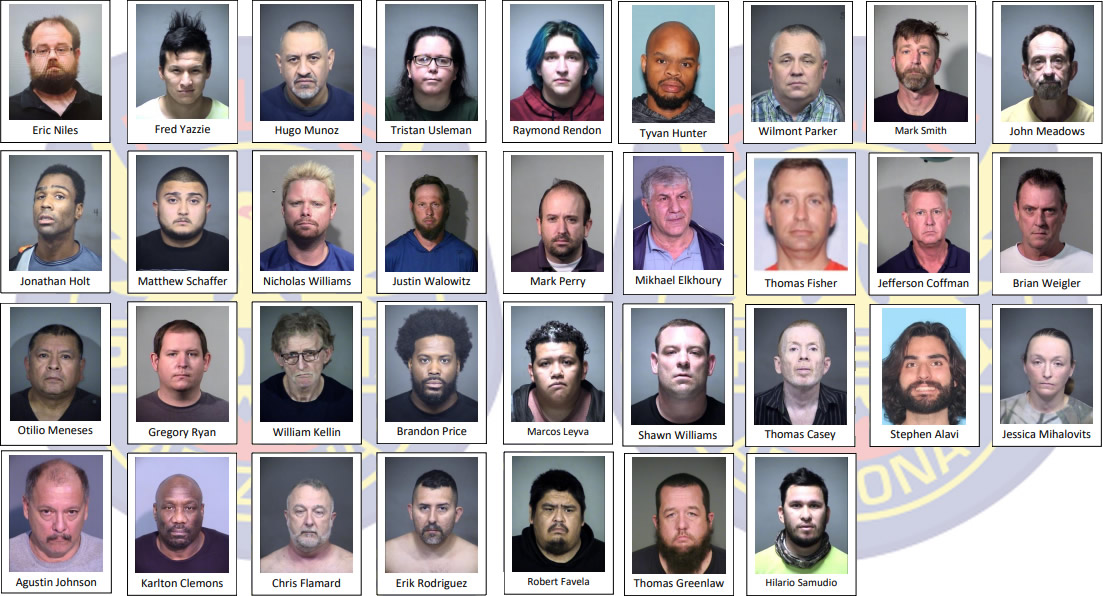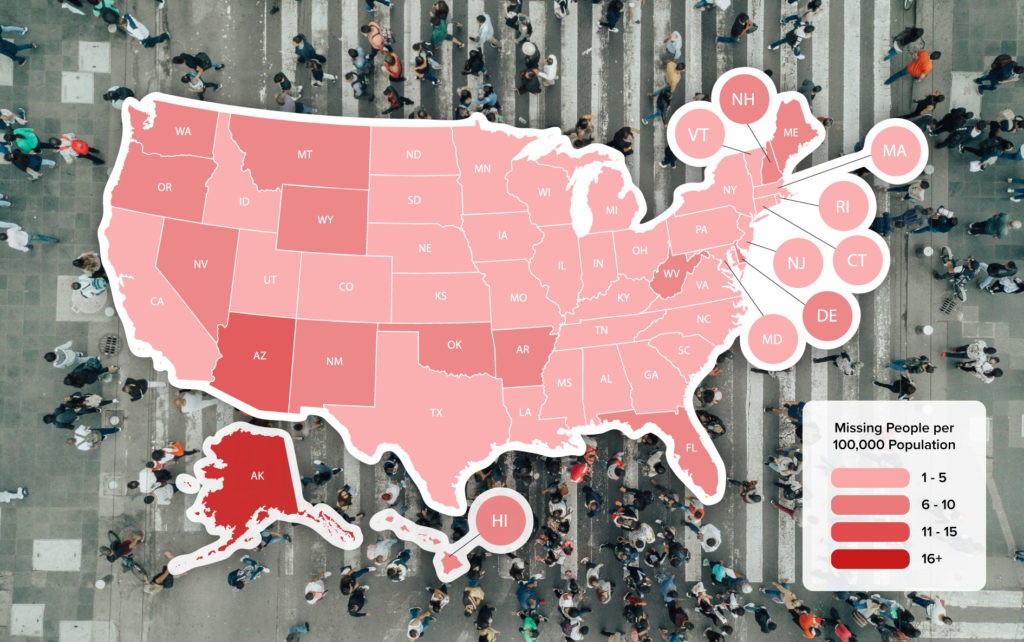Millions of images of sexually abused children are traded with like-minded predators all over the U.S. and beyond. Special correspondent John Ferrugia of Rocky Mountain PBS tells the story of one family who was victimized, and one FBI team that tracks down abusers.
Read the Full Transcript
Judy Woodruff:
It is a disturbing issue, but one that is growing, the production of millions of pornographic images of children being sexually abused.
They are uploaded from cell phones, Webcams, and computers.
John Ferrugia of Rocky Mountain PBS has the story of one family who was a victim and explores what you can do to protect your children.
Beth:
There was a card on our front door from the FBI, and, immediately, our hearts sank. We thought, why is the FBI contacting us?
John Ferrugia:
Seven years ago, Beth and her husband couldn't imagine what the FBI wanted, but they agreed to meet.
Beth:
They said, we believe your son has been a victim of a crime. And I said. Impossible. My son is at home. And he showed me the photos, and immediately I just broke down. My husband broke down crying.
John Ferrugia:
What she saw was her then 4-year-old son being sexually abused, the acts documented in still images and video, and uploaded to the Internet. It had been going on for two years.
Beth:
And they asked us if we knew who the person was and where he could be located, and…
John Ferrugia:
And did you?
Beth:
I did. He actually was a family friend that we had known for a long time, almost my whole life.
Tina Fourkas:
It's your neighbor, it's your pastor, it's your teacher, it's your soccer coach. We have had all of those types of people, people with kids, people without kids.
John Ferrugia:
FBI Special Agent Tina Fourkas has been investigating Internet child pornography in the Denver field office for more than seven years.
Tina Fourkas:
I wish there was some magic profile where we could identify these people, but there's not.
John Ferrugia:
It was Fourkas, along with agents in Illinois, Missouri, Arizona, and Colorado, who were able to identify son. Through their investigation, they discovered he had been a victim in a multistate child porn ring, and the agents tracked down those who had sexually abused him for years.
Beth:
My son was going to my dad's house. My dad also had some people that were helping him out and providing care and resources at his House.
John Ferrugia:
So he had no idea?
Beth:
He had absolutely no idea.
John Ferrugia:
The men, one married with two children and the other single, who had access to Beth's son, were arrested and convicted.
The break in the case came with the arrest of this man, Richard Franklin. He is a 50-year-old military veteran who lived in this quiet Denver neighborhood with his parents, who knew nothing about their son's criminal obsession.
Tina Fourkas:
You take a quick walk around the house, and you immediately know usually who your subject is, because it's the bedroom with all the computers and all the keyboards.
John Ferrugia:
FBI photos from their search of the house show how Franklin closeted himself with his computers, where he could view images he collected of children being sexually abused.
Tina Fourkas:
He had hundreds of thousands of images and videos of child pornography.
John Ferrugia:
Hundreds of thousands?
Tina Fourkas:
Yes, hundreds of thousands.
John Ferrugia:
Franklin's images of sexually abused children, stored on hard drives, were being traded with like-minded predators all over the U.S. and beyond. Franklin was advertising for child porn, receiving images, including those of Beth's son, and trading images from his collection.
Franklin was convicted and sentenced to 100 years in federal prison. The National Center for Missing and Exploited Children, known as NCMEC, works with federal, state, and local law enforcement to identify children in photos who are being sexually abused.
Here is how it works: Internet service providers like Google, Yahoo, and others monitor the billions of uploads and downloads of material with algorithms that search for possible child pornography. When it is detected, the providers review them and contact NCMEC, sending a sample image, as well as information about the Web server and address. It is then passed along to the FBI for possible investigation.
Calvin Shivers:
We're able to run those images against known images that NCMEC has, and that may play a part in victim identification.
John Ferrugia:
Calvin Shivers is the special agent in charge of the FBI office in Denver. He previously headed the Violent Crimes Against Children section at FBI headquarters.
He says, in Colorado, about 50 percent of child porn cases investigated are derived from tips from Internet providers through the nonprofit.
Calvin Shivers:
A lot of times, when you just get a general tip, there may not be enough information. But NCMEC, because of the experience staff, they're able to in some instances call additional information that may help the investigation.
John Ferrugia:
The number of tips compiled by the National Center for Missing and Exploited Children has exploded in recent years. In 2010, there were more than 213,000 tips involving child pornography. In 2017, the number of tips was more than 10 million.
Judy Smith:
The number of cases that are happening, it's an avalanche. I mean, we just feel like we're dishing the ocean out with a spoon.
John Ferrugia:
Judy Smith is chief of the cyber-crime and national security section of the U.S. attorney's office in Denver.
Judy Smith:
Nobody wants to know that this dark side of humanity exists, and not just exists, but the scope of it.
John Ferrugia:
Judy Smith says another growing concern involves increasingly younger kids carrying smartphones.
Judy Smith:
They can take pictures of themselves, and they can send those to their friends or somebody who they think are friends. There's online predators out there who pose as young boys or girls, who then entice or ask kids to self-produce child pornography.
John Ferrugia:
And FBI Special Agent Tina Fourkas says, once just one photo is sent by an unsuspecting child or teen to a predator posing online as another kid, as illustrated in this NCMEC training video.
Tina Fourkas:
They can be blackmailed, or they're too embarrassed to say anything, so they continue to send pictures.
John Ferrugia:
To emphasize the point, Fourkas noted that while we were conversing on an upper floor of the FBI building in Denver-
Tina Fourkas:
People are actively posting child pornography on one of my undercover computers downstairs. There's a little girl on that site, you can tell she's self-producing. I mean, she's holding the cell phone out. She's nude. She's maybe 10, 11 years old.
John Ferrugia:
You're seeing this?
Tina Fourkas:
And we're seeing this live on this site. Why is she taking pictures of herself? Where are her parents?
Calvin Shivers:
You know, parents should be cognizant of what their children are doing on the Internet and on their smartphones just across the board.
John Ferrugia:
And FBI Special Agent in Charge Calvin Shivers says it goes beyond monitoring.
Calvin Shivers:
Parents should also make sure that there's a good avenue for their children to communicate and, if they had that conversation, that the children know that they can come to them.
To your point, a lot of the victims don't feel that they can talk to their parents. And that causes them to be revictimized over and over again.
John Ferrugia:
For Beth's son and for her family, ongoing therapy has brought them beyond trauma to hope.
How does how does your son see his future?
Beth:
Oh, just very positive. He's also going to have this story to go with it, that, you know, I dealt with this as a child, and, look, here I am, and you can get through it too.
John Ferrugia:
Beth and her family say they hope public discussion of this horrific crime will bring public awareness and reduce the stigma for victims whose childhood photos often remain accessible on the Web, and that it will help victims and their families heal.
For the "PBS NewsHour," I'm John Ferrugia in Denver.























